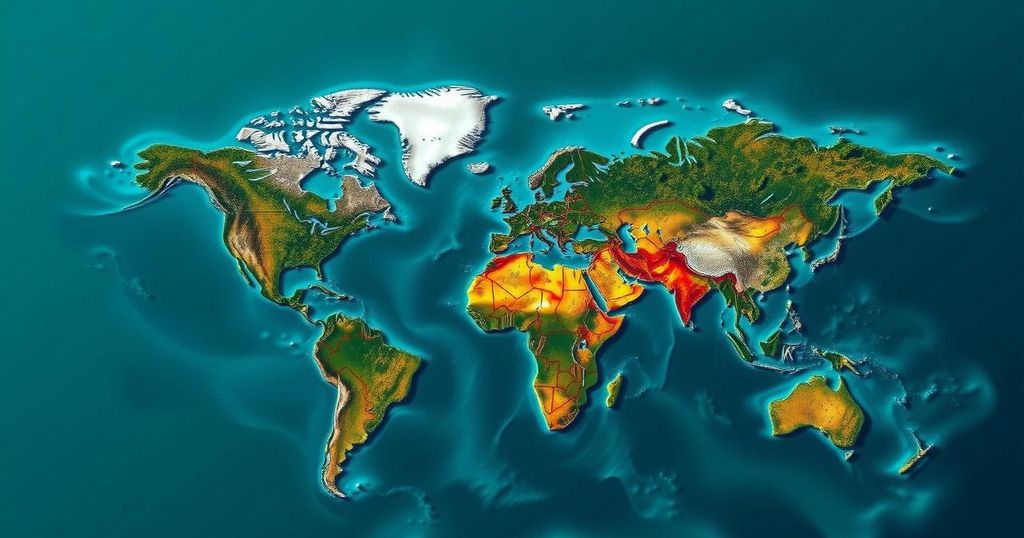Vanuatu’s push for an advisory opinion from the ICJ on climate law aims to clarify global responsibilities in mitigating climate change. Supported by over 130 countries, the case seeks to amplify the voices of small island nations despite the absence of backing from major emitters like China and the U.S. The hearings start on December 2, 2023, potentially influencing future climate negotiations.
In an effort to drive international action on climate change, Vanuatu’s attorney-general has articulated the significance of the climate case brought before the International Court of Justice (ICJ) as a potential catalyst for change. The hearing, which is scheduled to commence on December 2, aims to secure a ruling pertaining to states’ obligations under international law to curtail human-induced climate change. This initiative received backing from over 130 nations in 2023 but notably excludes China and the United States, the world’s largest emitters. Vanuatu seeks to amplify the voices of small island nations, which bear the brunt of climate change despite their negligible contributions to greenhouse gas emissions. The case not only reflects the challenges faced by vulnerable island nations amidst global negotiations but also aims to establish moral authority through a definitive court ruling. Arnold Kiel Loughman emphasized that this initiative is not about assigning blame but about addressing collective global responsibility. By seeking an advisory opinion from the ICJ, Vanuatu hopes to influence discussions on climate financing, an area critically needed by small island countries, which have repeatedly struggled to secure adequate support despite ongoing international dialogues. As global temperatures rise due to human activities, Pacific island nations, including Vanuatu, foresee severe impacts such as intensified tropical cyclones and rising sea levels, jeopardizing their very existence. The upcoming ICJ ruling could serve as a pivotal moment, providing leverage for these nations in discussions centered around climate finance, urging larger nations to recognize their responsibilities to address these challenges. With the stakes escalating, the outcome of this case might redefine climate change discourse on an international level.
The current initiative by Vanuatu to bring a climate change case to the International Court of Justice represents a significant moment in international climate law. With the backing of over 130 countries, this case seeks to clarify the legal obligations of states in preventing human-induced climate change. The international community, notably the coalition of Pacific Island nations, is increasingly vocal about the existential threats they face due to climate change impact. These nations contribute minimally to emissions yet remain disproportionately affected by their consequences, highlighting the pressing need for equity in climate governance and finance. The decision by the ICJ to offer an advisory opinion could influence how nations approach climate negotiations, potentially holding larger emitters accountable and pushing for more robust climate financing mechanisms. As the climate crisis intensifies, the outcome may carry considerable moral weight in future international climate discussions.
The upcoming case at the International Court of Justice signifies a critical juncture for climate accountability and justice, particularly for marginalized nations like Vanuatu. As Pacific Island countries advocate for their rights against climate impacts, this ruling could provide essential guidelines for global responsibilities in climate action. Furthermore, it highlights the urgent necessity for equitable climate financing, which has historically fallen short for small island nations. Ultimately, the anticipated decision from the ICJ may empower these vulnerable states, ensuring their concerns are heard in global forums.
Original Source: www.benarnews.org






